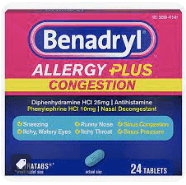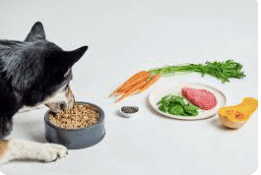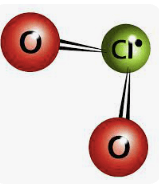Vaccines can impact gene expression. Can vaccines impact the way certain genes are expressed? Quite possibly. Vaccines are part of an environment and lifestyle we provide our dogs. Epigenetics is the study of how environment, which also includes food, medication, water, exercise, sunlight, vitamins, sleep etc that affect the way genes work, both good and bad. Vaccines can impact gene expression.
Vaccines are important. They provide protection against diseases, but that protection does come with some serious ingredients, not just the dead pathogen. Take a look at the ingredients found in many popular dog vaccines:
- Adjuvants: aluminum salts, oil-based squalene, bacteria-based lipopolysaccharides, sugars.
- Preservatives: mercury (thimerosal), antibiotics (gentamicin, amphotericin B, neomycin, polymyxin-B), phenoxyethanol.
- Attenuating agents: formaldehyde.
- Growth medium: foreign animal tissues:
- Chick embryo
- Bovine serum
- Human fetal lung tissue
- Monkey kidney tissue
- Porcine tissue
- Eggs
- Insect proteins
- Fungicides and antimicrobials: phenol, formaldehyde.
- Buffering agents: glycerol, sorbitol, sucrose, salts, borax.
- Stabilizers: formaldehyde.
- Surfactant, Permeability Enhancer: polysorbate 80 (Tween® 80).
- Virus particles: individual vaccines (modified live or killed), contamination viruses (Rotavirus) from the animal tissues used to grow vaccines.
- Contaminates: glyphosate from GMO-fed animals … used for vaccine growth medium (eggs, bovine and porcine tissue), insect viruses (Army worm), Rotavirus.
Source: Dogs Naturally Magazine
We have to remember that vaccines are products, which are designed to make money. And in order to make the most money, companies will use the cheapest ingredients possible to keep their products shelf-life stable and make the most profit even if it is at the expense of your animal's health.
One of the most commonly used preservatives is a mercury based ingredient called thimerosal. According to the CDC, "Thimerosal is a mercury-based preservative" and "is added to vials of vaccine that contain more than one dose (multi-dose vials) to prevent growth of germs, like bacteria and fungi." The CDC says thimerosal is safe.
However, in 1935, the Pittman Moore Animal Pharmaceutical Company warned against its safety “even in dog serum” because they found that over 50% of vaccinated dogs suffered inflammatory reactions to Thimerosal because it "a very inflammatory neurotoxin and genetic mutator" (read more on that here).
Despite this warning, most of the vaccines our dogs receive still contain it. So if our dogs continue to receive vaccines as typically scheduled: at 6 - 8 weeks, 10-12 weeks, 16-18 weeks, 12-16 months, and yearly boosters, their immune systems become bombarded with thimerosal and other adjuvants which their bodies are simply not designed to handle and then they get sick.
It's also important to note that puppies are already born with antibodies and protection against common disease from their vaccinated parents whose parents were also vaccinated and their parents who were also vaccinated and with this protection also comes thimerosal, which again is a "a very inflammatory neurotoxin and genetic mutator." So, if it is possible that thimerosal altered genes of parent dogs, It is quite possible that these mutated genes are being passed down from litter to litter as well, causing sickness literally from conception.
Each skull in the visual below represents the passing of thimerosal and mutated DNA from one generation of bulldogs to another. As you see, each generation has more and more thimerosal exposure and it just accumulates in their bodies. And, since most bulldogs are born via c-section and do not receive healthy bacteria from their mothers' birth canal, the stage is set for perfect storm of illness, which is why your dog is sick in the first place.

If you want a healthy dog, you must vaccinate carefully. Please learn more about our vaccine recommendations and schedule here. If your dog is chronically ill, do not vaccinate. Do titer tests instead and visit Bobzilla's Happy, Healthy Life Made Simple.
$5.00
The veterinary business is business which is not in the business of curing your animal, but Bobzilla's business is. Bobzilla is committed to one hundred percent transparency in all of its scientific research into animal wellness and prevention of disease and one… read moreDonate to Bobzilla.org





